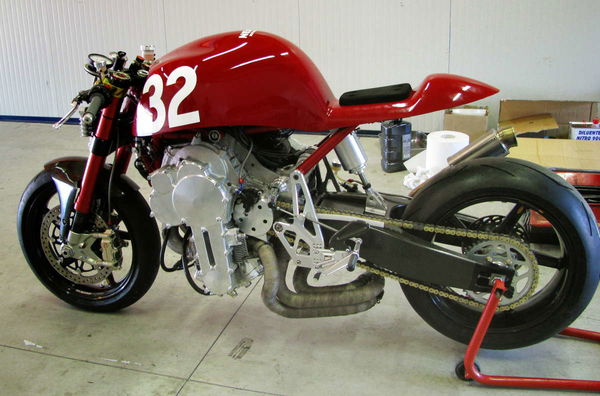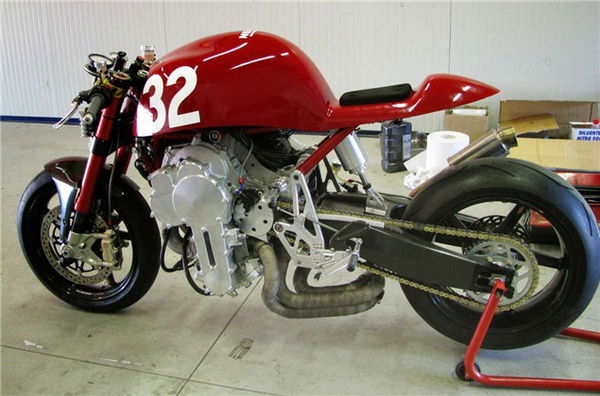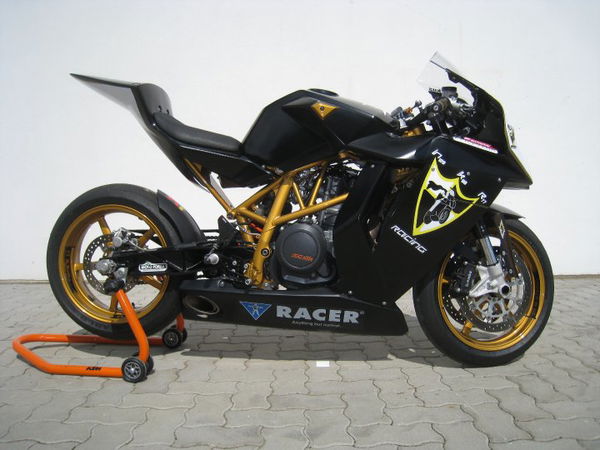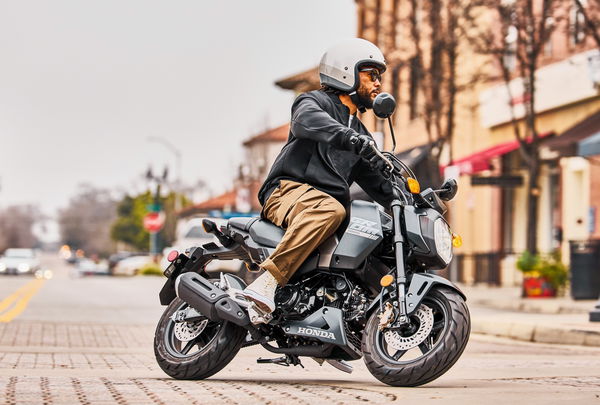1814cc inverted 3-cylinder Nembo 32
Prototype machine undergoes testing at Italian circuit


THIS is the Nembo 32, a prototype motorcycle that's about to be put into limited production. The Nembo uses an 1814cc three-cylinder inverted engine.
The Nembo team were testing at the Franciacorta circuit in Italy. The final machine will use a larger, 1925cc engine.
The idea behind the Nembo 32 is that by turning the engine upside-down it can use the crankcase as a structural part of the chassis without putting any loads through the cylinders or cylinder head. The front and rear frame sections bolt straight to the crankcases while the cylinders and head just hang there.
It's a wonderful looking motorcycle and we applaud it's unique look. However, the downsides to the idea are not in short supply:
1) All the delicate bits of the engine – the cam covers, cooling fins, electronics, spark plugs etc – are hanging down in the path of any rocks being thrown up from the front wheel.
2) The lubrication has got to be complex. Even with a dry sump and scavenge pump oil is going to try to collect in the cylinder head. It’s also going to work its way past the piston rings into the combustion chamber. Not good for performance, engine life or emissions.
3) It needs a long intake manifold to move the air intake up to a conventional position where there’s room for an airbox. That’s got to sap power.
4) The exhausts are in totally the wrong place. You can see from the design that they’ve struggled to get enough length into the pipes.
5) In terms of weight distribution they’ve put the crankshaft way higher than any conventional bike. That can’t be good, can it?
6) The swingarm pivot is very high. Again I’m not certain of the effect, but nobody else seems to want to do that in their designs.
7) If you were to drop it, the first thing to hit the ground would be the cylinder head. Which is fragile compared to a crankcase.
In short, there would be many, many easier ways to solve the problem than turning the engine upside down. Like, er, having a normal frame, for instance. All this design saves is a couple of bits of steel that would turn its two sub-frames into a single, conventional trellis. One that’s proven and doesn’t need a radical new engine design.
Upside-down engines have been around since the dawn of time (for instance, most German WW2 fighters and bombers used them – notably the Messerschmitt 109). They were always known for using a lot of oil..











